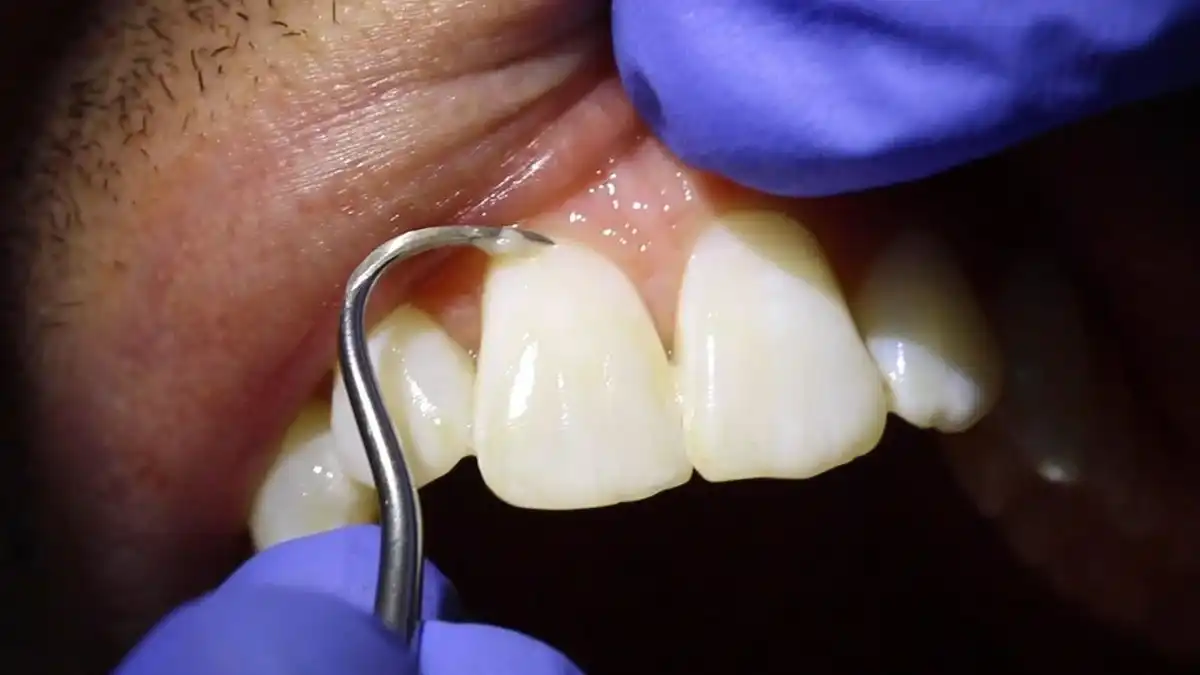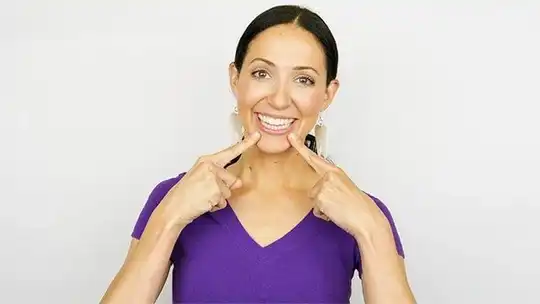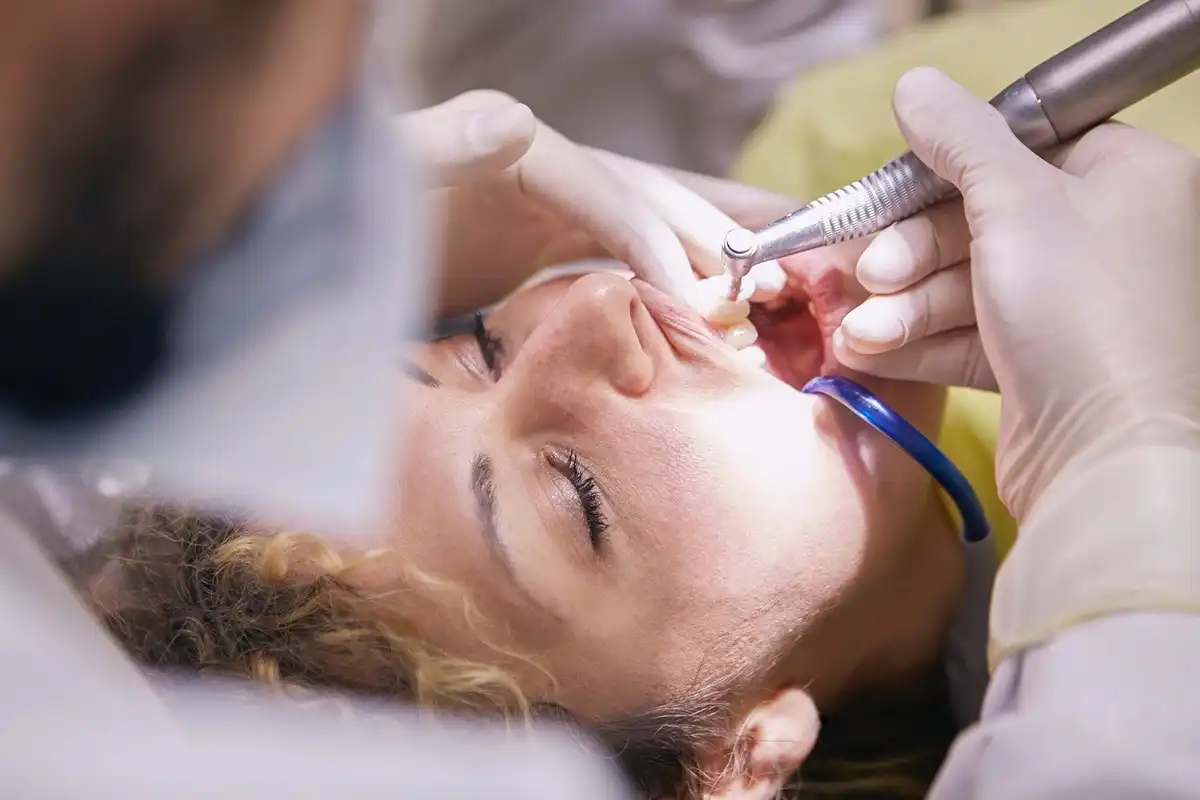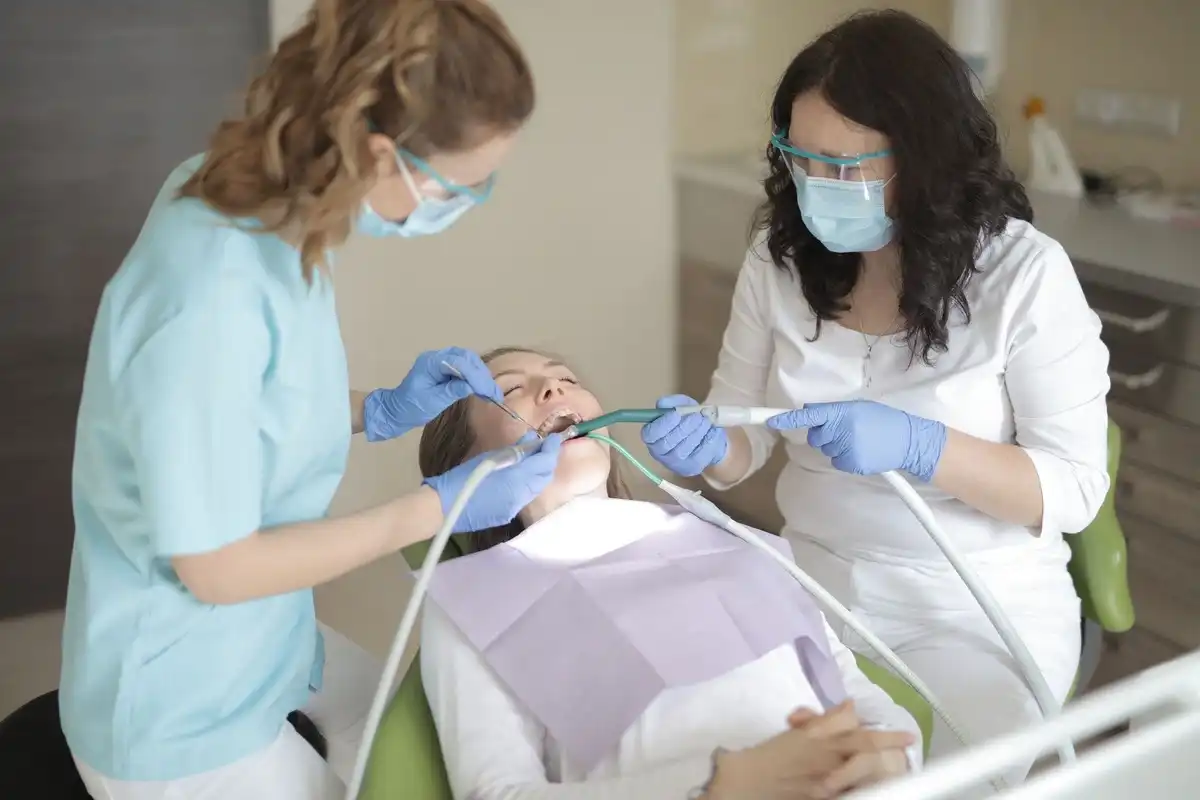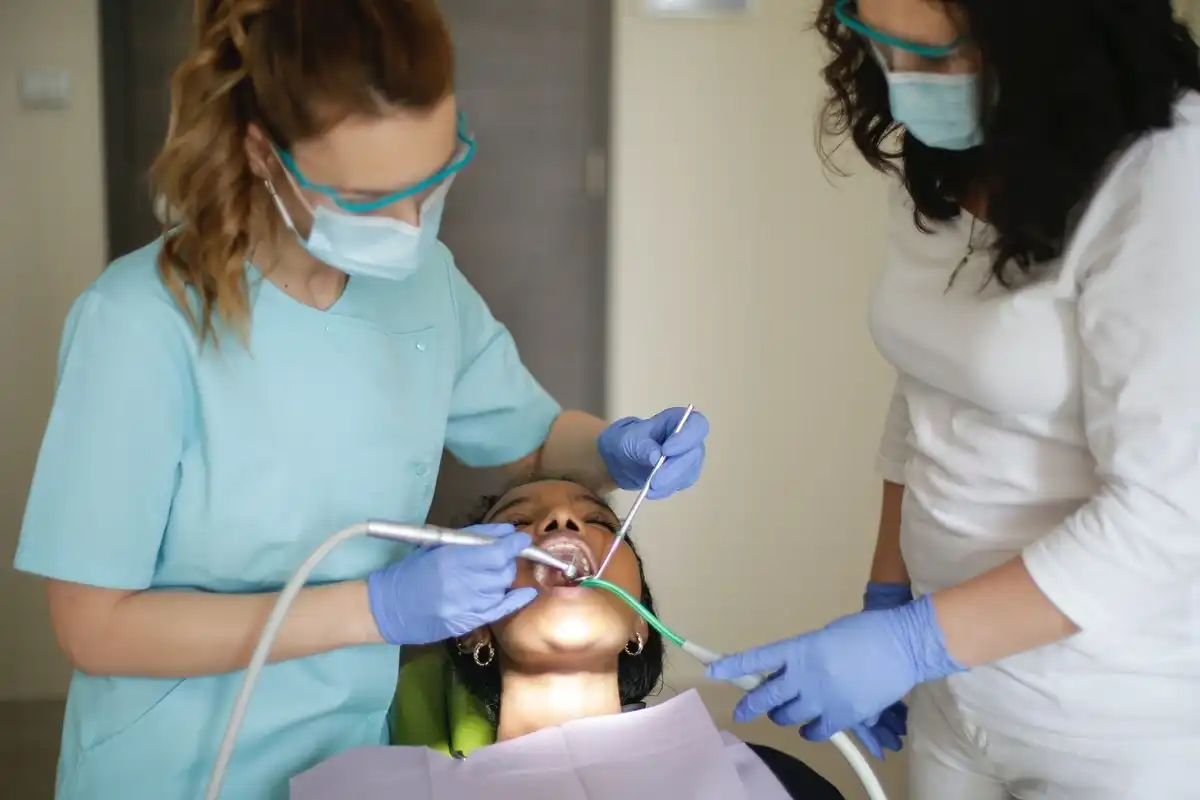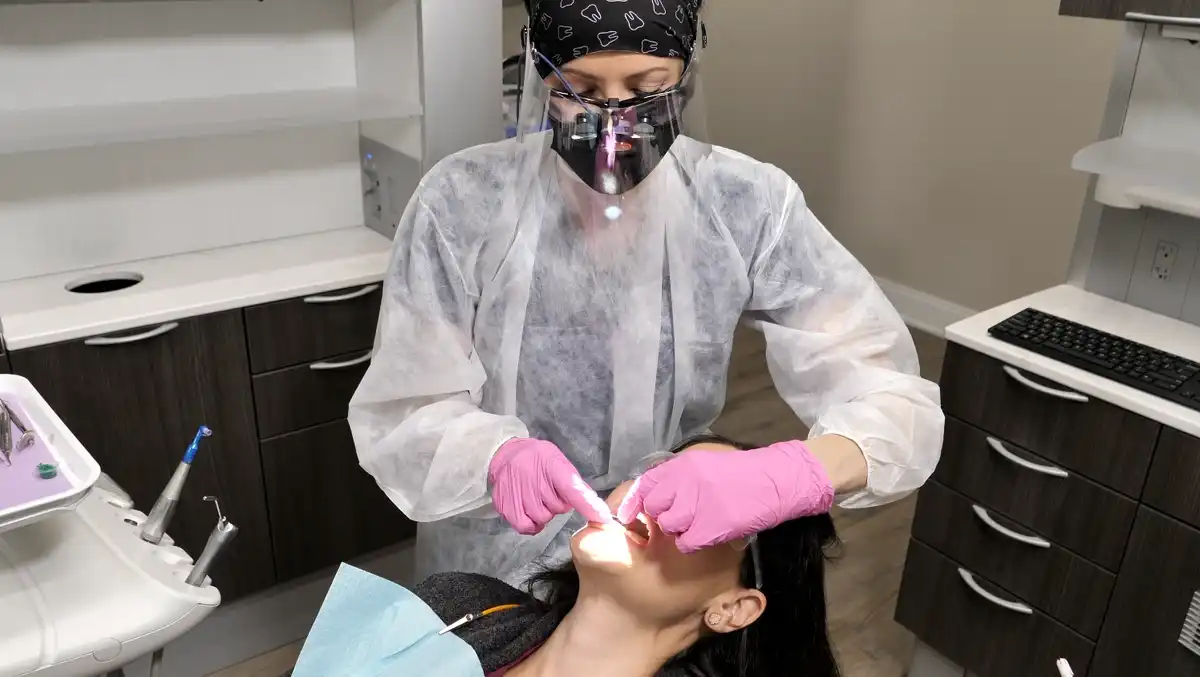Is Dental Hygiene A Good Career? 12 Reasons It's For You

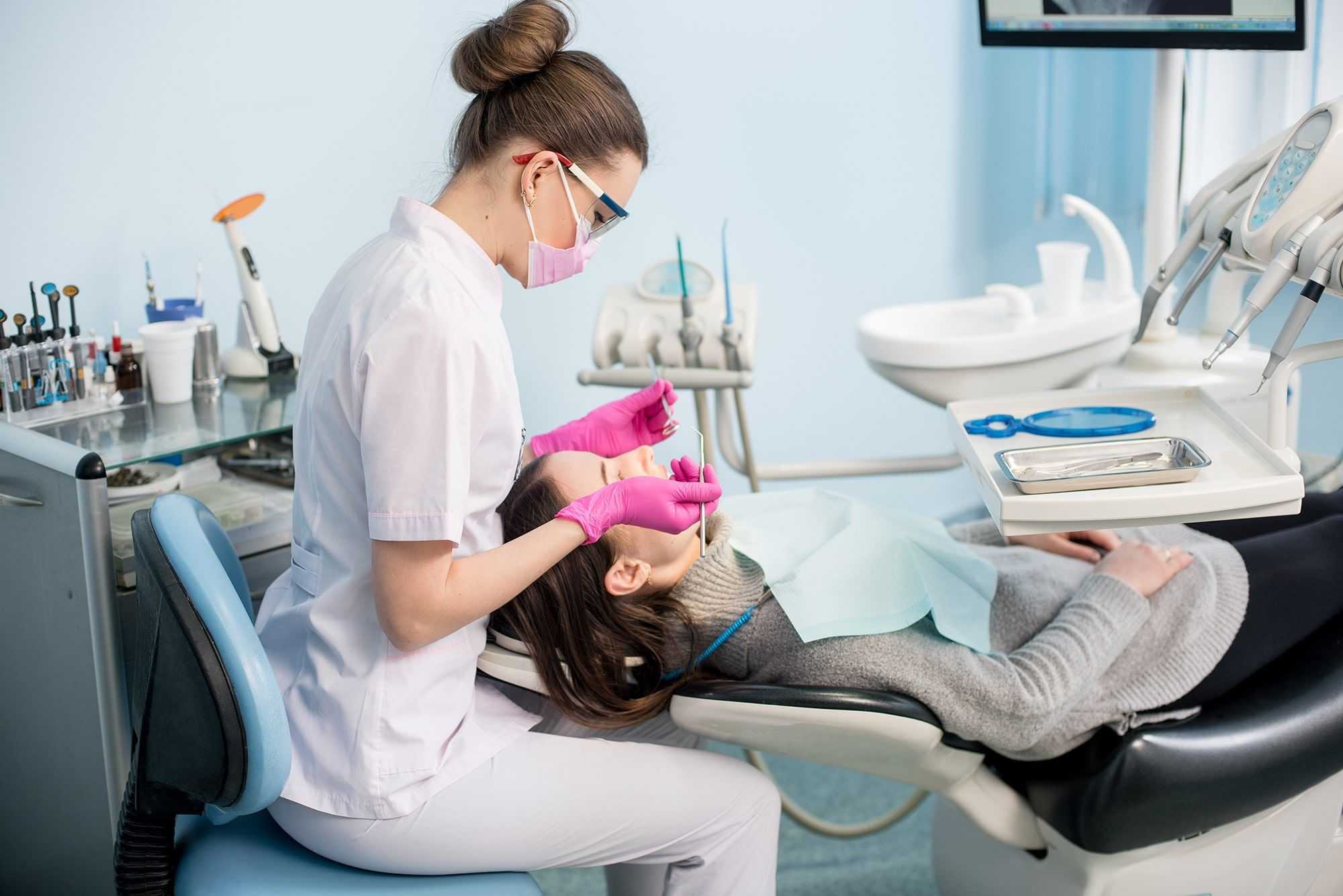
Right now, as I’m writing this, there’s a shortage of dental hygienists. Not just in the US but also in places like Canada. If you’ve ever wondered whether or not dental hygiene is a good career, now is a great time to make a move! Why be a dental hygienist? You truly make a difference in the health and quality of life of other people. Plus, the work schedule is usually flexible, and it pays well!
Is Dental Hygiene A Good Career?
Absolutely! Depending on which dental hygiene school you go to, you can complete either an associate’s or bachelor’s degree, so you’re not necessarily spending a ton of time in school. Everyone entering the workforce is paid equally, regardless of their degree level. That means you can go into less student debt; who doesn’t want that?!
Dental hygiene is a very rewarding and predictable career. As an oral health practitioner, you get to work independently in your own clinical room (“operatory”) and see your own patients. Over the years, you’ll create lasting relationships with both patients and peers.
Dental hygiene is repeatedly listed as one of the best-paying, best careers for people considering getting into healthcare. You provide direct care to patients, have a solid 8-5 schedule in most settings, and also have chances to branch out into other dental-related industries, such as education, research, sales, etc.
Who Is The Dental Hygiene Career For?
Why be a dental hygienist? If you love the idea of working in healthcare or dentistry and want to work independently, dental hygiene is a great career choice. Especially if you love working with your hands. You’ll need to be attentive to details, as you’ll constantly be reviewing medical records and screening patients for underlying health conditions. But you’ll also need to be a people person and team player because you’ll share responsibilities with other dental hygienists and dental assistants and report directly to the supervising dentist in your practice.
Dental hygiene school requires a foundation of several science prerequisites before you’re admitted. So just like nursing school, you’ll have to take things like A&P, microbiology, and chemistry. Being comfortable with those types of classes can be extremely helpful if you’re considering going into hygiene.
One thing to remember before deciding to become a dental hygienist is that there is no “step up” or “mid-level” option between being a hygienist and a dentist. While some countries do have mid-level dental practitioners—sort of like the equivalent of being a nurse practitioner or physician assistant—that’s not a thing in the US.
What Do Dental Hygienists Do?
Most people know dental hygienists as the clinician who cleans and polishes their teeth. And maybe lectures them on flossing. But there’s actually a whole lot more to being a dental hygienist. For one, you’re an educator. You help patients understand the oral-systemic health link between conditions like periodontal disease and cardiovascular attack, stroke, pneumonia, and more.
You also screen for oral cancer to help identify potentially life-threatening malignancies that could cost your patients more than just their smiles.
Dental hygienists also screen for conditions like sleep apnea, TMJ disorder, and others, alerting the dentist to their findings for a more in-depth analysis and testing when needed.
As a dental hygienist, you get to play a key role in how patients view dental care overall. One of which is preventing and coaching patients through anxiety or dental phobia to help them be more at ease with the dental experience in the future.
But yes, dental hygienists also clean teeth by removing plaque and tartar buildup, polishing away surface stains, and using special instruments to access root surfaces below the gumlines, where buildup is hard to reach. In addition to preventative cleanings, dental hygienists may also perform periodontal therapy, such as deep cleanings. Plus, there are all of the in-between patient duties like taking X-rays, room disinfection, and sterilizing instruments. If there’s downtime, you can also help schedule patients, pour models, trim whitening trays, and oversee ordering supplies.
Is Becoming a Dental Hygienist Right for Me?
A great way to decide whether or not you want to be a dental hygienist is to shadow an RDH in your community. Ask for permission to spend the day at the clinic to watch what they do. Since most hygiene schedules are fairly consistent from one day to the next, you’ll have a good idea of whether or not the role is what you’re looking for after one or two shadowing experiences. But don’t forget about shadowing in a specialist’s office either; maybe you’re interested in working with kids or in a periodontal practice. Consider shadowing in at least 2-3 offices to get a good feel for the career.
One of the reasons why dental hygiene is a good career is because it allows you to take on a full or part-time role, depending on your preferences. A lot of dental hygienists work 2-3 days a week or just temp when they want to. Others work full-time.
When you become an RDH, you don’t stop learning. Every year you’ll also get the chance to attend continuing education classes to stay abreast of the latest trends in the industry.
12 Reasons Why You Should be an RDH
Let’s get down to the nitty-gritty. Here are 12 different reasons why you might want to be a dental hygienist. Some may be more important to you than others, and that’s totally fine. We all have different reasons for coming into dental hygiene, and they vary from person to person. It might be because you love that your current dental hygienist only works twice a week, so it gives you time to spend with your kids. Or maybe you want to be a travel RDH and go site-seeing on the weekends. Regardless of what your “why” is, it’s a job that can be rewarding, enjoyable, and pays well. Here’s a little bit more to consider as you’re making a list of pros and cons:
1. Helping People
A healthy, attractive smile is important for everyone, regardless of their age. As a dental hygienist, it’s rewarding to help people look and feel their best. Not only that, but you’ll physically be helping people by removing biofilm that might otherwise strain their immune systems and pose a serious health risk. Your skills will boost other people’s confidence and shape the way they view dental care in the future.
2. Flexibility
Want to work two or three days a week? You’re in luck! A lot of dental hygienists work flexible schedules and love it. Some even find dental offices with expanded hours to work evenings or weekends; it all depends on your lifestyle and what you’re hoping to achieve. If you work a couple of days here and a couple of days there every week, it also helps keep things fresh and means you get to meet more people. Dental hygiene is a good career if you want to fill in as needed because temp agencies can place you for jobs on the days you’re free and want a little extra work.
3. In-Demand Job
I’ve said it once, and I’ll say it again—there’s a shortage of dental hygienists. If you’re new to being an RDH, you’re not going to have a hard time finding a job. Dental offices everywhere are hiring, so you almost have your pick of where you want to work. Some are private dental practices; others are corporate. Depending on what you want the benefits to look like and where you want to live, you can rest assured that finding a job as a dental hygienist isn’t as challenging as a lot of other careers.
4. Competitive Pay
Listen, the pay for a dental hygienist is great. The average national salary is just over $75,000 per year, but it can be a lot more than that, depending on where you live. Some dental hygienists earn over $100,000 per year. And while temping isn’t right for everyone, some RDH temp jobs pay as much as $70-$90 an hour if you’re able to fill in at an office on short notice. Dental hygiene has always been a great-paying job. Keep in mind that while the hourly salary is nice, you’ll also want to weigh the pros and cons of working part-time vs. full-time. A full-time position will also come with benefits, whereas a part-time role probably will not.
5. Job Security
Right now, there’s a huge demand for dental services and dental hygienists across the country. Dental hygiene is a good career because you can find a great dental office and work there for decades. Or if you find yourself moving, it’s usually not very hard to find a job. That wasn’t the case a decade ago. While dental hygiene has always been a good career, the limited number of dental hygienists in the industry is making it easier to find a stable RDH job or even take up temping if that’s something you want to do (with temping, you pick your own schedule.) In 2 to 4 years, you can become a dental hygienist if you're looking for a more stable career change.
6. Continuing Education
One reason why you want to be a dental hygienist is that you’re always learning. RDHs are lifelong learners because the dental industry and patient care trends are always evolving. That means you’ll have the chance to take in-person or online training courses in various areas of dental care. Sometimes it even means a fun weekend trip with the dental team to attend an out-of-town conference. As you learn new information and skills, you’ll get to immediately start incorporating them into your practice or share your knowledge with the dentist and office manager for new equipment investments.
7. Autonomy
Unlike dental assistants, many dental hygienists are able to care for patients independently and only with limited supervision by the dentist. Depending on your state laws, you may be able to provide services without a dentist in the building. Some states even allow dental hygienists to have their own private practices! Simply put, as long as the patient sees the dentist for regular exams or at least once a year, dental hygienists can typically provide preventative services without the dentist stepping into the room. But in about 99% of cases, you’ll have the dentist come in to examine the patient and check on anything you noted during the cleaning.
8. Opportunities for Specialization
Most dental hygienists work in family practice or general dentistry settings, but not all of them. You have the option of working in a specialty practice, such as pedodontics/pediatrics, periodontics, endodontics, or an office focused on cosmetic dentistry. So, for example, if you love working with kids, you might consider becoming a pediatric dental hygienist a couple of days a week and then transitioning to full-time if you love it as much as you think you will.
9. Personal Fulfillment
Becoming a dental hygienist isn’t exactly a cakewalk. You’ll complete tough classes and take national board exams before you’re licensed to work. After that, you’ll be responsible for educating patients to help better their lives on a day-to-day basis and providing preventative care. You’ll have a feeling of knowing you’ve put the work in and that it’s paid off, not just for you but for the patients you care for.
10. Collaborative Work Environment
Dental hygienists are team players. They often pre-screen patients for conditions and then hand them off to the dentist for formal diagnosis and treatment planning. They also work with assistants in the office to ensure a streamlined care process. Even though an RDH usually has “their own room” they’re working in most of the day, they also communicate and collaborate with the other dental team members for a comprehensive patient care strategy.
11. Hands-On Work
If you’re great with your hands, you could make a great dental hygienist. RDHs have to have great tactile skills and hand-eye coordination. You’ll find that a lot of people in the industry are also fairly artistic and have a keen eye for detail because of the extremely small surfaces they work with each day. As a dental hygienist, you’ll get to use manual and electronic instruments to care for patients’ teeth while also being gentle on the soft tissues around them.
12. Sense of Accomplishment and Lifelong Career
Being a dental hygienist is a rewarding career. What you do as a dental hygienist can change a person’s health and social life. When you see the before and after results and the way those patients look in the mirror, you get a feeling of pride in what you’ve done. Being a dental hygienist is so rewarding that many RDHs continue to work in the field for 30+ years and make clinical hygiene their sole profession.
Is Dental Hygiene A Good Career For You?
There are numerous career paths to becoming an RDH, and choosing the right dental hygiene program can be challenging. Do you opt for an associate's, bachelor's, or master's degree? I have a free dental hygiene career checklist to assist you in becoming the best RDH and earn a competitive salary! Download my RDH Video Checklist today!
If being a dental hygienist is not for you, there are other dental professional jobs that might suit you better, such as a dentist or dental assistant.
Why Become A Dental Hygienist
If you like the idea of working with patients every day, making a difference in the lives of others, earning competitive pay, and the flexibility of a full or part-time job, then dental hygiene is a good career! Especially if you already know that you love going to the dentist. You’ll always be learning since your license requires annual professional development. Even if you have worked in clinical dental hygiene for several years, you still have other options, such as going into sales, consulting, education, or public health, if you want to mix things up a little bit. Dental hygiene is a stable, well-paying job, and right now is a great time to consider becoming an RDH because of the demand for dental hygienists across the US.

Make your inbox smile!
Subscribe
